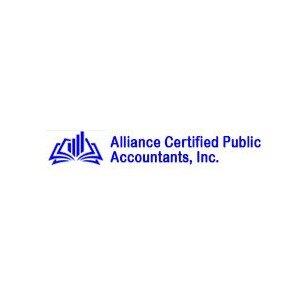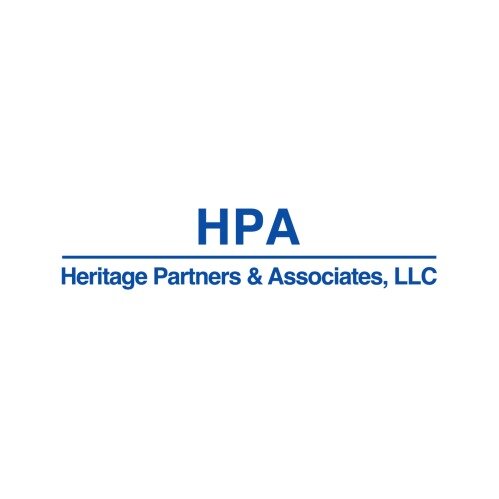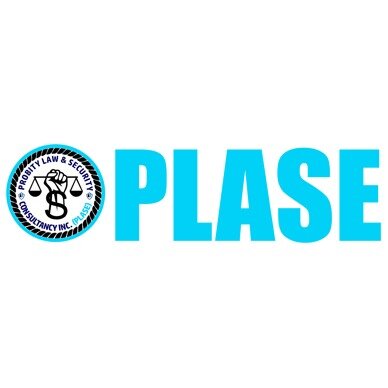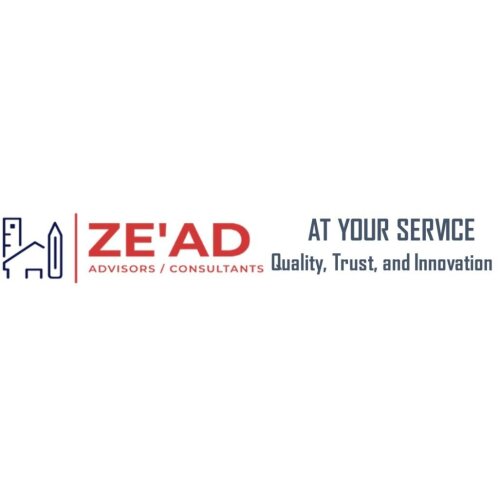Best Energy, Environment & ESG Lawyers in Liberia
Share your needs with us, get contacted by law firms.
Free. Takes 2 min.
Or refine your search by selecting a city:
List of the best lawyers in Liberia

Alliance Certified Public Accountants, Inc. (Alliance CPAs, Inc.)
15 minutes Free ConsultationAbout Energy, Environment & ESG Law in Liberia
Energy, Environment & ESG (Environmental, Social, and Governance) law in Liberia focuses on the regulation and management of natural resources, environmental protection, and sustainable business practices. Liberia, with its vast natural resources including forestry, mining, water, and potential for renewable energy, has recognized the importance of responsible resource management. The country is implementing policies and adopting international standards to ensure its energy development is sustainable, environmentally friendly, and aligned with good governance and social responsibility principles. ESG considerations are becoming increasingly relevant, especially for businesses seeking to operate responsibly and attract international investment in Liberia.
Why You May Need a Lawyer
There are many situations in which individuals, companies, or organizations in Liberia may require legal assistance related to Energy, Environment & ESG law. A lawyer can help you:
- Navigate the process of acquiring licenses, permits, or concessions for energy projects, mining, or forestry
- Ensure compliance with environmental regulations and standards during construction or operation of projects
- Address allegations of environmental harm, pollution, or non-compliance
- Negotiate community development agreements or manage stakeholder relations
- Interpret and comply with ESG requirements for access to international financing or partnerships
- Resolve disputes over land use, compensation, or environmental impact
- Respond to government inspections or enforcement actions
- Advise on corporate policies for sustainability and governance
- Assist with environmental impact assessments and public consultations
- Support with reporting and disclosure of social and environmental performance
In each of these areas, legal advice can help prevent costly mistakes, ensure compliance, and protect your interests.
Local Laws Overview
Liberia’s legal framework for energy, environment, and ESG consists of statutes, regulations, and policies. Some of the key laws and regulations relevant to these fields include:
- The Environmental Protection and Management Law (EPML), administered by the Environmental Protection Agency (EPA), sets out requirements for environmental impact assessments, pollution control, and conservation.
- The Electricity Law regulates the generation, transmission, and distribution of electricity and seeks to increase access while ensuring environmental protections.
- The Forestry Reform Law governs the management, conservation, and sustainable use of the country's forest resources.
- The Mining Law provides for the granting of mining licenses and lays out environmental obligations for mining companies.
- Community Rights Law and Land Rights Act address community participation, compensation, and land tenure for development projects.
- Various international agreements to which Liberia is a party influence aspects of climate, biodiversity, and sustainable development.
ESG considerations are being integrated into national strategies, particularly for companies seeking international financing or partnerships, where compliance with best practice standards is required. Reporting, transparency, and governance standards are evolving, creating new obligations and opportunities for stakeholders.
Frequently Asked Questions
What is an environmental impact assessment (EIA) and when is it required?
An environmental impact assessment (EIA) is a formal process required before starting certain development activities in Liberia, such as large-scale mining, energy projects, or infrastructure. The EIA evaluates the likely environmental effects and outlines plans to manage or mitigate negative impacts. Approval from the Environmental Protection Agency is mandatory before commencement of such projects.
Who regulates environmental issues in Liberia?
The main agency responsible for environmental regulation in Liberia is the Environmental Protection Agency (EPA). The EPA oversees compliance, enforces environmental laws, reviews EIAs, and ensures adherence to environmental standards.
What are the penalties for violating environmental laws?
Penalties can include fines, suspension or revocation of licenses or permits, mandatory remediation, and in severe cases, criminal prosecution. The exact penalty depends on the nature and severity of the violation.
How do I obtain a license for an energy or mining project?
You must apply to the relevant government authority, such as the Liberia Electricity Regulatory Commission (LERC) for energy or the Ministry of Mines and Energy for mining. The process typically involves submitting a business plan, technical and financial information, and environmental documentation. Legal assistance is advised to ensure a successful application.
What are ESG requirements and standards in Liberia?
ESG requirements in Liberia are based on national laws and, increasingly, international standards that promote responsible environmental, social, and governance practices. Businesses may need to provide reports on sustainability, community impact, labor standards, and governance structures, especially when seeking foreign investment or partnerships.
Can affected communities participate in project development?
Yes. Laws such as the Community Rights Law and Land Rights Act require consultation with and participation of impacted communities in decision-making, especially for land use and benefit sharing agreements.
What should I do if I am accused of an environmental violation?
Contact a lawyer experienced in environmental and regulatory matters immediately. Time is important for preparing your response, providing necessary documentation, and negotiating with authorities if needed.
Are there incentives for using renewable energy in Liberia?
The government encourages investment in renewable energy, and some incentives such as tax exemptions and reduced import duties may be available for renewable projects. Legal advice can help you qualify for and access any available incentives.
How can companies ensure compliance with ESG standards?
Companies should adopt internal policies, conduct regular audits, keep up-to-date with changing laws, engage with stakeholders, and seek legal counsel to ensure ongoing compliance with ESG standards.
Do international treaties affect local energy and environmental laws?
Yes, Liberia is party to several international treaties on climate change, biodiversity, and sustainable development. These treaties shape national policies and sometimes introduce new obligations for businesses and governments.
Additional Resources
For further information or assistance related to Energy, Environment & ESG in Liberia, the following organizations and agencies are particularly helpful:
- Environmental Protection Agency (EPA) - Responsible for environmental management, EIAs, and policy enforcement
- Liberia Electricity Regulatory Commission (LERC) - Regulates the electricity sector
- Ministry of Mines and Energy - Oversees mining, mineral resources, and energy policy
- Forestry Development Authority (FDA) - Manages forest resources and oversees forestry permits
- Ministry of Lands, Mines and Energy - Involved in licensing, permits, and oversight of energy and mining projects
- Civil society organizations focused on environmental protection, community rights, and sustainable development
You may also consider professional associations of legal practitioners and international development partners for additional guidance.
Next Steps
If you require legal assistance in Energy, Environment & ESG in Liberia, consider the following steps:
- Identify your specific legal needs or challenges, such as licensing, compliance, dispute resolution, or regulatory advice
- Gather all relevant documents and information about your project or concern
- Seek referrals or conduct research to find a lawyer or law firm with experience in Energy, Environment & ESG law in Liberia
- Contact the chosen lawyer to schedule an initial consultation, during which you can discuss your situation and learn about the best way forward
- Work collaboratively with your legal advisor to ensure all actions comply with Liberian law and any relevant international standards
- Stay informed about changing laws and best practices by utilizing the resources and organizations listed above
Taking early and informed legal action is the best way to protect your interests and contribute to the sustainable development of Liberia’s energy and environmental sectors.
Lawzana helps you find the best lawyers and law firms in Liberia through a curated and pre-screened list of qualified legal professionals. Our platform offers rankings and detailed profiles of attorneys and law firms, allowing you to compare based on practice areas, including Energy, Environment & ESG, experience, and client feedback.
Each profile includes a description of the firm's areas of practice, client reviews, team members and partners, year of establishment, spoken languages, office locations, contact information, social media presence, and any published articles or resources. Most firms on our platform speak English and are experienced in both local and international legal matters.
Get a quote from top-rated law firms in Liberia — quickly, securely, and without unnecessary hassle.
Disclaimer:
The information provided on this page is for general informational purposes only and does not constitute legal advice. While we strive to ensure the accuracy and relevance of the content, legal information may change over time, and interpretations of the law can vary. You should always consult with a qualified legal professional for advice specific to your situation.
We disclaim all liability for actions taken or not taken based on the content of this page. If you believe any information is incorrect or outdated, please contact us, and we will review and update it where appropriate.
Browse energy, environment & esg law firms by service in Liberia
Liberia Attorneys in related practice areas.
Browse energy, environment & esg law firms by city in Liberia
Refine your search by selecting a city.











